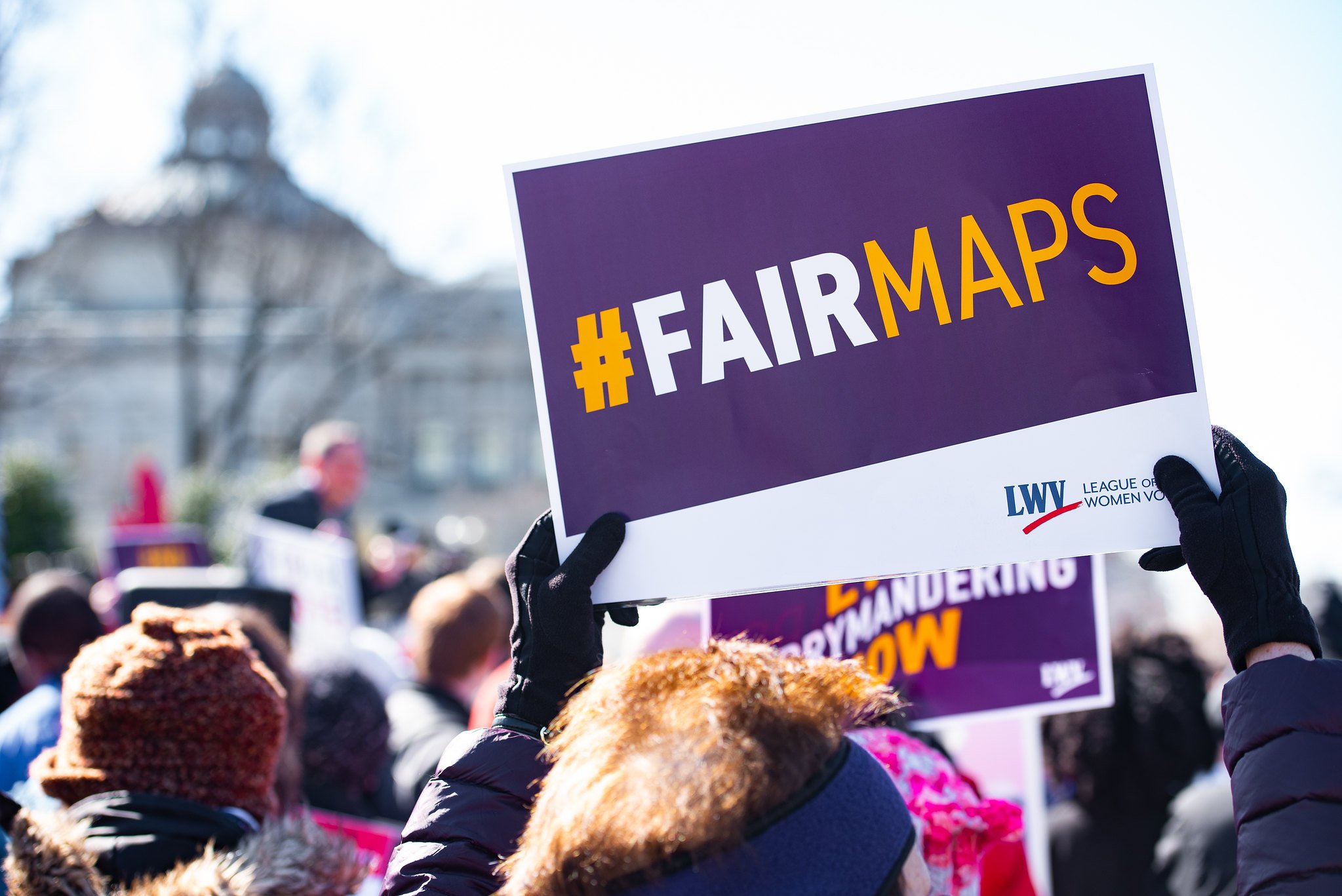
League of Women Voters of North Carolina v. Rucho (consolidated with Common Cause v. Rucho)
Case Summary
LWVNC v. Rucho challenged North Carolina’s 2016 redistricting plan as an unconstitutional partisan gerrymander and a violation of the First and Fourteenth Amendments. The case was consolidated with Common Cause v. Rucho, and the US Supreme Court ultimately ruled that partisan gerrymandering claims are not properly heard in federal court.
In September of 2016, the League of Women Voters of North Carolina filed a lawsuit challenging the 2016 remedial congressional redistricting map as an unconstitutional partisan gerrymander and a violation of the First and Fourteenth Amendments. This map had been adopted by the North Carolina legislature after one of its earlier maps had been struck down.
The lawsuit alleged that the map favored some voters and punished others for their political affiliation. In March of 2017, LWV’s case was consolidated by a three-judge district court panel with Common Cause v. Rucho, another case challenging the state’s map. The state attempted to stay the Rucho case pending a US Supreme Court ruling in a Wisconsin redistricting case, Gill v. Whitford (which the League joined as amicus), but the motion was denied. In January 2018, the District Court struck down the map as an unconstitutional partisan gerrymander and prohibited the state from using the map in future elections.
The case was appealed to the US Supreme Court for consideration. Oral argument took place on March 26, 2019. For more details on the arguments made in the courtroom, please see this blog.
In June 2019, The Supreme Court held that partisan gerrymandering was a nonjusticiable political question. This result bars partisan gerrymandering claims from being brought in federal court, meaning that partisan gerrymandering claims must be litigated in state courts.
The League was represented by the Southern Coalition for Social Justice, Campaign Legal Center, and the University of Chicago Law School.
LWV Timeline
LWV North Carolina files lawsuit
LWV North Carolina and several individual plaintiffs file a federal lawsuit, asserting the state's Congressional districts were an unconstitutional partisan gerrymander in violation of the Equal Protection Clause and First Amendment of the United States Constitution.
Three-judge panel denies motion to dismiss
The panel denies defendants' motion to dismiss, ruling that current Supreme Court precedent did not bar plaintiffs from bringing the case.
Plaintiffs oppose motion for stay
The plaintiffs file their opposition to the defendants' motion to stay the case. The brief argues the request is a delay tactic by the defendants and that if granted, voters might be forced to undergo another election under unconstitutional maps.
District court denies defendants' motion for stay
The court denies defendants' motion, finding that plaintiffs would suffer substantial prejudice if it was granted, and that defendants had failed to demonstrate clear and convincing circumstances outweighing that harm to receive a stay.
The court holds a trial
A three-judge panel, consisting of two Democratic appointees and one Republican appointee conducts a trial on the districts' constitutionality.
District court strikes down Congressional maps
A majority of the three-judge panel strikes down the Congressional map, ruling it is a partisan gerrymander that violates the Equal Protection Clause and First Amendment of the United States Constitution.
Defendants ask for a stay from the United States Supreme Court
Legislative defendants file an emergency application with the US Supreme Court asking the court to stay proceedings at the district court pending appeal.
Plaintiffs respond to stay application
Plaintiffs file their opposition to defendants' application for a stay, arguing the equities did not favor granting one and that defendants had failed to prove irreparable injury.
United States Supreme Court remands case
The Supreme Court remands the case to the trial court, ordering it to consider the matter further after the Court's ruling in Gill v. Whitford.
District court issues new opinion
On remand, the three-judge panel holds that, under Gill v. Whitford, the plaintiffs had standing to challenge the districts. The opinion reaffirms that with one narrow exception, the districts violate the United States Constitution's Equal Protection Clause and First Amendment.
Plaintiffs request affirmance of district court decision
The League of Women Voters asks the United States Supreme Court to affirm the District Court's decision on remand.
United States Supreme Court grants hearing
The United States Supreme Court agrees to review the district court's ruling.
LWV of Maryland files amicus brief
LWV of Maryland joins an amicus brief supporting affirmance of the district court's decision. The brief also supports affirming Lamone v. Benisek, a challenge to the Maryland Congressional map which was consolidated with the challenge to the North Carolina districts before the Court.
United States Supreme Court holds oral argument
The Supreme Court holds the oral argument for the case.
United States Supreme Court issues ruling
The United States Supreme Court issues its opinion, holding that partisan gerrymandering is a political question and cannot be handled by federal courts.




